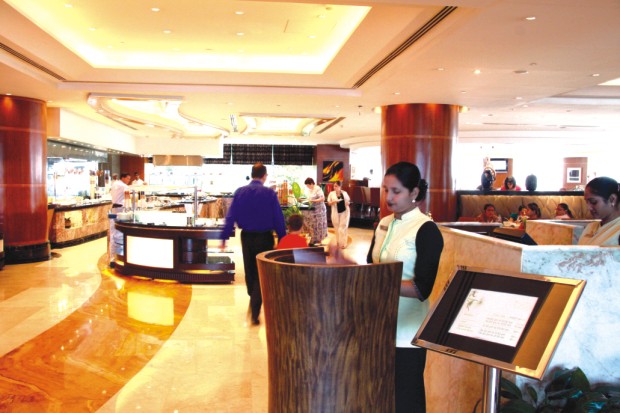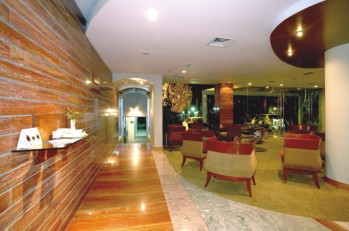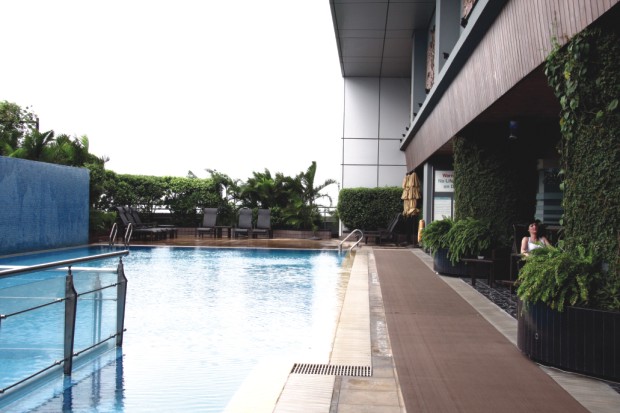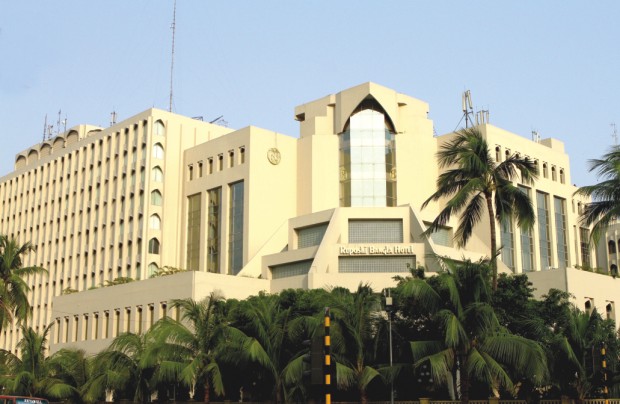| Home - Back Issues - The Team - Contact Us |
 |
| Volume 10 |Issue 19 | May 20, 2011 | |
|
|
Special Feature
Homes away from Home Raisaa Tashnova If you have been living in this city for as long as you can recall you most likely have not noticed the recent upsurge of hotels of all shapes, sizes and budgets setting up shop here in the past few years. Apart from the flashy five or four stars such as Westin, Radisson, Sonargaon or Sheraton (now Rupashi Bangla) there are numerous other semi-luxury hotels, discount hotels and budget hotels and guest houses catering to a greater number of guests than those exclusive five stars. This sudden enthusiastic interest in the city's hotel industry has led many to wonder what has changed in the last five or so years to justify and encourage such acts by our (and international) shrewd investors. Statistically speaking, the tourism sector is becoming more attractive. After years of steady revenues this sector seems to have finally jumped onto the band wagon of fast growth, bringing in a revenue of Tk 5562.7 million last year from a total of 9,00,000 tourists. It seems like Dhaka is reaping the benefits of economic development in Bangladesh and playing host to an ever increasing number of business travellers from all corners of the world, all around the year. There are also numerous families, friends and solo travellers out to enjoy the history and culture of this mysterious metropolis on the up. Apart from these obvious travellers we also have another interesting segment--those interested in the Southeast Asian cultural exchange of which Dhaka has become a major part. “Three-star hotels such as ours thrive on business tourists in the city,” says S M Abu Taher, sales and marketing executive at Hotel Washington, located in Gulshan Avenue. “Our location is our greatest value addition for the business tourists who make up more than 85 percent of our customer base. The rest is a mixture of tourists, stopping over before leaving for Cox's Bazaar or other tourist spots or tourists visiting the city for a few days on their tour of southern Asia.” Fighting for business tourists in the city can be quite competitive as many smaller boutique hotels or serviced apartments usually affiliate with the bigger companies to direct their international guests towards their businesses. The hotel industry has become such that every hotel, serviced apartment or B&B (bread and breakfast) has a unique segment which they aggressively target, in addition to catering to the general international guests. Hotel Washington for example is more customised towards catering to tourists from the SAARC nations while Hotel Sarina, which is also situated in Gulshan, enjoys Western pleasure tourists more than Eastern business tourists.
Apart from the economic boom attracting money making minds, the tourist sector of the country has also seen a major overhaul. “The ICC Cricket World Cup did not hurt either,” states Abu Taher, “During the tournament our rooms were booked and indeed overbooked by the journalists and cricket enthusiasts that the game attracted and today we are waiting to see and enjoy the after effect of the marketing that Bangladesh tourism received as a result of being a host of the tournament.” With that in mind many other medium and budget range hotels have also geared up and increased their investment and amenities. “Another major customer segment apart from business tourists comprises of those who stop over before moving on to other tourist spots,” says Rezaul Karim, PR official, Hotel Sundarban. “Especially with western tourists we see that they stop over for 2-3 days after they land, to check out the few heritage spots such as old Dhaka etc. and then again they stop over on their way out of the country for another 1-2 days to enjoy the cheap shopping. Thus if we succeed in pleasing them we get these 5 day stays.” The benefits of economic development and more importantly commercial development that these and upcoming hotels are enjoying would have escaped everyone's grip if our Government did not intervene. Bangladesh Government, by creating free passage agreements with many of the SAARC countries and with other similar agreements have made it easier for tourists to get in. They have also created accommodating laws about bringing in as much foreign exchange as they desire. Despite such huge steps, the stakeholders of the industry believe that the government has a long way to go. “The government is mainly concerned in fulfilling the needs of the 5-star hotels in which they own shares. Private concerns such as ours are left to fend for ourselves and survive on the positive externalities of the Government actions and legislations constructed for the benefit of the 5-stars,” says a frustrated Abu Taher. Rezaul Karim has gone further, expressing the need for both private and public investment in the hospitality training sector. “The few private hospitality management institutions and the one public institution are far from being satisfactory in producing the quantity and quality of labour required for the proper development of this industry. There needs to be intense development of the infrastructure available within these institutions as well as recruitment of more experienced and able staff.” Less well known hotels such as Rafflesia situated in the depth of Gulshan 1 demand more extreme reforms from the government side. “The government should ensure a certain quality within all hotels in the city,” says the manager of the hotel, “This would ensure safety of the tourists and dispel bad publicity of Dhaka hotels in general.” Bad publicity, however, seems to be of little concern. Of the 30 Dhaka city hotels reviewed by international tourists, more than 10 came out with flying colours of satisfaction not having a single negative review against them. Out of the other 20, 15 suffered from mixed reviews mainly due to cleanliness and maintenance problems and the remaining 5 only had complaints about security. A final note, there is a common misconception by many of us that unless it's flashy it's not safe and that is just that, a common misconception. Reviews by travellers of all sectors show that value for money is very important for international guests on limited budgets and value for money is what most hotels in Dhaka aim to achieve. “The level of dedication and support I received from the hotel staff was remarkable,” says Sunesh Rodrigoes, a visitor to SEL Nibash in Green Road, from Sri-Lanka. “There was airport pick up and drop of services, constant cleaning services and prompt responses to most of my requests. But the best part by far is the warmth of the people here.” If we look at only one guest's perspective the picture will certainly be biased. There have been many who left with negative experiences. “Never again” writes an Indian visitor in a travel website as his review of a hotel in Banani while Casy from France shares her horrible story about the lack of security in a hotel in Mohakhali. Most of the ingredients necessary for success in this sector have already been added to the economy. Great growth in trade and commerce, opening up to the world and greater government interest are a few. All that is needed now is a pinch of maintenance, a dash of honesty and a handful of hospitality; with that we will have the best prepared tourism sector we can aim for. For more reviews about hotels visit: www.tripadvisor.com
The End of 27 Years of Glory Afrida Mahbub It will still take a bit more time for those devoted Sheraton customers to get used to the 'Welcome to Hotel Ruposhi Bangla' greeting once they step out of their cars. But the news has been equally striking for the general public as well, not the least because we are unaccustomed to this whole concept of abrupt change of names, Sheraton moreover is intertwined with our history and culture, especially because of the part it played during the liberation war when it was called Hotel Intercontinental. It was the hotel that housed all the foreign correspondents covering the war. The Mukti Bahini bombed the hotel where many Pakistani officials hobnobbed. The new name itself has given rise to a lot of opinions, both positive and negative. While some have said that the Bengali name is good in a sense that it will send a positive message to the foreigners visiting the hotel, others argued that the name could have been a bit more sophisticated and this might eventually lead to an identity crisis for the hotel. There is no denial of the fact the major reason for the massive brand value of this hotel was the 'S' logo that came with it. The Bangladesh Government under the name of Bangladesh Service Limited (BSL) owned minority shares in the hotel till the name change came into action. It is now owned by the government of Bangladesh completely. The whole name changing process itself seems to be quite mysterious and has given rise to a lot of unanswered questions. While the management has claimed that Sheraton, the international hotel chain giant, is shrinking their operations and as a reason has left Bangladesh, there are rumours that tell otherwise and indicate that there is quite a bit of a story to it. Hotel Sheraton was running smoothly and was reaping satisfactory revenues from Bangladesh.
The BSL authority has claimed that the prices of the commodities and the services are still the same while the quality has been upgraded. Moreover, they are playing the role of controlling the hotel for the interim period till the transfer of management responsibilities to some other party. Marriott Intercontinental, Swiss and Hyatt are within their list of prospective owners. But whoever takes the charge will have to work under the current name 'Ruposhi Bangla' chosen by Prime Minister Sheikh Hasina. As Rashed, a final year student of Dhaka University, rightly says, “The name Dhaka Sheraton entails that it's part of a chain of international hotels. When prospective customers hear the name 'Ruposhi Bangla', they get the message that they can expect a taste of the local Bengali culture, be it the cuisine, the architecture or the service. Had they undertaken a thorough renovation which focused on the architecture, cuisine and staff, the name could have worked.” Zeenat, a non resident Bangl-adeshi, says, “If I were a foreigner visiting Bangladesh and someone asked me where I am going to stay and gave me the names of hotels in Dhaka (without any other detail), I would've crossed out Ruposhi Bangla immediately.” Ritu Raj, a third year student of IBA says, “Well I think the name Sheraton had a brand value attached to itself for being around for so long. The name was nice. Not that Ruposhi Bangla is not a good name. Sure it has a touch of patriotism and a Bangla-deshi ring to it, but still, it's hard for foreigners to pronounce. I think it has lost its appeal.” Zeehad Usayed Islam, a marketing executive working for a multinational company says, “It changed their brand image from something elegant and classy to something more festive and local, which is not reflected in their service.” Hence, whether for the better or worse, the result of this change will only be measured through the success of Ruposhi Bangla in the coming years. Hence, as their well wishers, we wish them the best of luck for this new beginning.
Copyright
(R) thedailystar.net 2011 |
||



